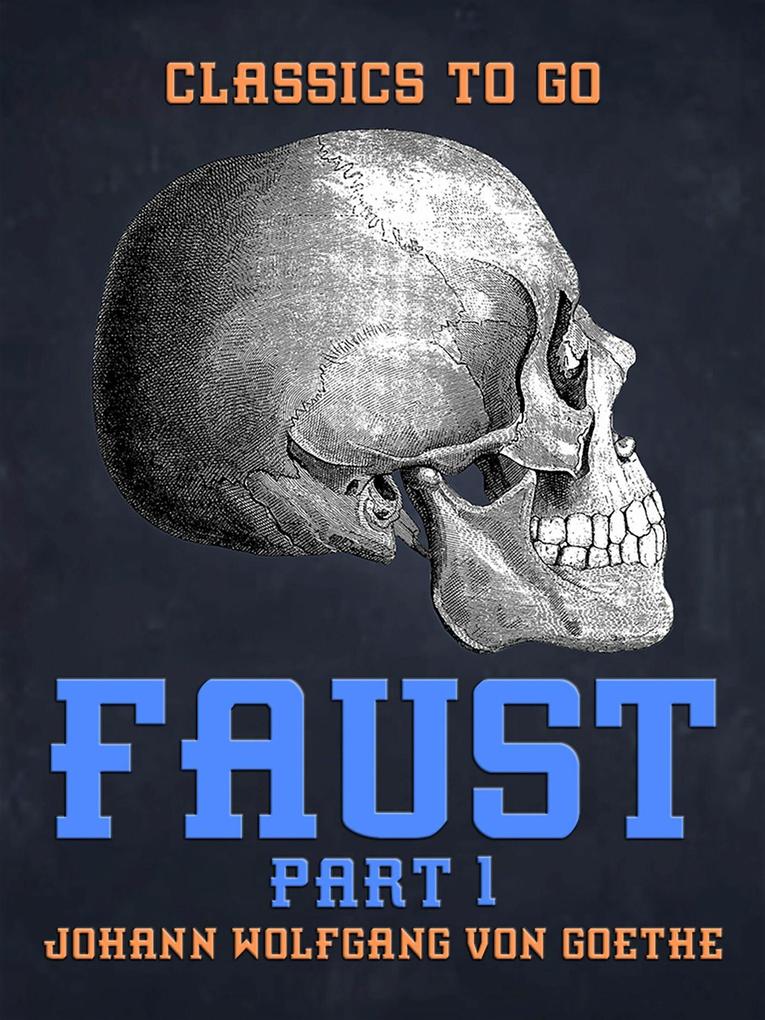
Sofort lieferbar (Download)
Faust: A Tragedy (German: Faust. Eine Tragödie), or retrospectively Faust. Der Tragödie / erster Teil) is the first part of the tragic play Faust by Johann Wolfgang von Goethe, and is considered by many as the greatest work of German literature. It was first published in 1808. The first part of Faust is not divided into acts, but is structured as a sequence of scenes in a variety of settings. After a dedicatory poem and a prelude in the theater, the actual plot begins with a prologue in Heaven, where the Lord bets Mephistopheles, an agent of the Devil, that Mephistopheles cannot lead astray the Lord's favorite striving scholar, Dr. Faust. We then see Faust in his study, who, disappointed by the knowledge and results obtainable by science's natural means, attempts and fails to gain knowledge of nature and the universe by magical means. Dejected in this failure, Faust contemplates suicide, but is held back by the sounds of the beginning Easter celebrations. He joins his assistant Wagner for an Easter walk in the countryside, among the celebrating people, and is followed home by a poodle. Back in the study, the poodle transforms itself into Mephistopheles, who offers Faust a contract: he will do Faust's bidding on earth, and Faust will do the same for him in Hell.
Produktdetails
Erscheinungsdatum
06. Januar 2021
Sprache
englisch
Seitenanzahl
118
Dateigröße
2,69 MB
Autor/Autorin
Johann Wolfgang von Goethe
Verlag/Hersteller
Kopierschutz
ohne Kopierschutz
Family Sharing
Ja
Produktart
EBOOK
Dateiformat
EPUB
ISBN
9783968656151
Entdecken Sie mehr
Bewertungen
0 Bewertungen
Es wurden noch keine Bewertungen abgegeben. Schreiben Sie die erste Bewertung zu "Faust Part 1" und helfen Sie damit anderen bei der Kaufentscheidung.









